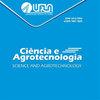Rethinking plant breeding and seed systems in the era of exponential changes
IF 0.9
4区 农林科学
Q2 AGRICULTURE, MULTIDISCIPLINARY
引用次数: 0
Abstract
ABSTRACT The article stresses the need to reassess plant breeding and seed systems in our current era, characterized by rapidly shifting paradigms propelled by technological and scientific progress. It underscores the importance of incorporating cutting-edge technologies, fostering interdisciplinary collaboration, and implementing forward-looking policies to meet evolving societal and consumer demands while aligning with the Sustainable Development Goals (SDGs). Advancements in genetic editing, high-throughput technologies, precision breeding, and digital agriculture are transforming plant breeding, offering unprecedented capabilities to develop desirable traits, comprehend gene-environment interactions, and enhance crop efficiency. However, responsible innovation that considers ethical implications and regulatory frameworks remains essential in this context. Effective collaboration and engagement of stakeholders, including breeders, farmers, policymakers, and consumers, are vital for navigating the challenges and opportunities presented by this era of exponential change. Inclusive and multidisciplinary dialogues can harness diverse perspectives and experiences, contributing to a sustainable and resilient future for plant breeding and seed production. Ensuring access to diverse, high-quality seeds is crucial, especially in developing nations. Investments in seed infrastructure, capacity building, and farmer-centric approaches empower farmers and bolster seed security. In conclusion, the article underscores the significance of reimagining plant breeding and seed systems by embracing technology, promoting collaboration, and aligning strategies with the SDGs. By harnessing the potential of exponential changes, the envisioned future involves plant breeding and seed production that effectively address evolving societal and consumer needs, thereby contributing to agricultural resilience, global food security and sustainability.在指数变化时代重新思考植物育种和种子系统
摘要:本文强调了在科技进步推动下快速转变模式的当今时代,重新评估植物育种和种子系统的必要性。它强调了采用尖端技术、促进跨学科合作和实施前瞻性政策的重要性,以满足不断变化的社会和消费者需求,同时与可持续发展目标保持一致。基因编辑、高通量技术、精准育种和数字农业的进步正在改变植物育种,为培育理想性状、理解基因与环境的相互作用和提高作物效率提供了前所未有的能力。然而,在这种情况下,考虑伦理影响和监管框架的负责任创新仍然至关重要。育种者、农民、政策制定者和消费者等利益攸关方的有效合作和参与,对于应对这个指数级变化时代带来的挑战和机遇至关重要。包容性和多学科对话可以利用不同的观点和经验,为植物育种和种子生产的可持续和有复原力的未来做出贡献。确保获得多样化、高质量的种子至关重要,尤其是在发展中国家。对种子基础设施、能力建设和以农民为中心的方法进行投资,增强农民的权能,加强种子安全。总之,本文强调了通过拥抱技术、促进合作和使战略与可持续发展目标保持一致来重新构想植物育种和种子系统的重要性。通过利用指数变化的潜力,未来植物育种和种子生产将有效满足不断变化的社会和消费者需求,从而促进农业恢复力、全球粮食安全和可持续性。
本文章由计算机程序翻译,如有差异,请以英文原文为准。
求助全文
约1分钟内获得全文
求助全文
来源期刊

Ciencia E Agrotecnologia
农林科学-农业综合
CiteScore
2.30
自引率
9.10%
发文量
19
审稿时长
6-12 weeks
期刊介绍:
A Ciência e Agrotecnologia, editada a cada 2 meses pela Editora da Universidade Federal de Lavras (UFLA), publica artigos científicos de interesse agropecuário elaborados por membros da comunidade científica nacional e internacional.
A revista é distribuída em âmbito nacional e internacional para bibliotecas de Faculdades, Universidades e Instituições de Pesquisa.
 求助内容:
求助内容: 应助结果提醒方式:
应助结果提醒方式:


